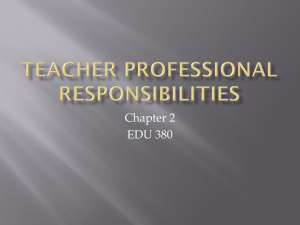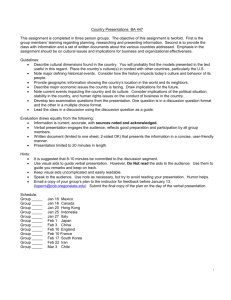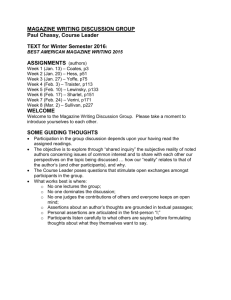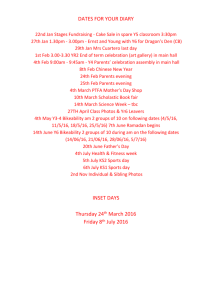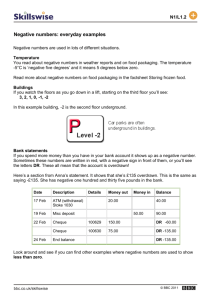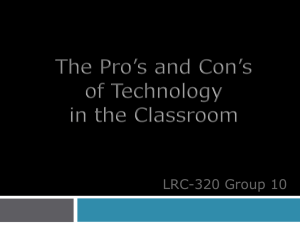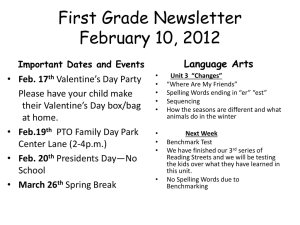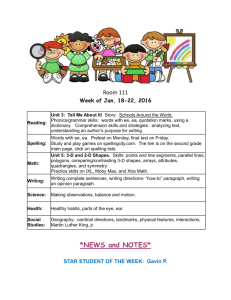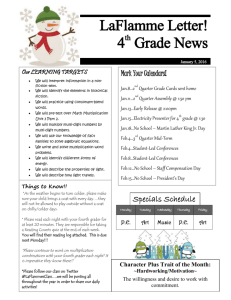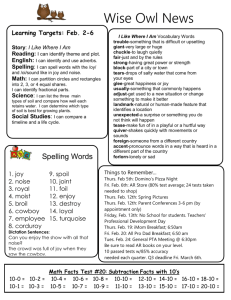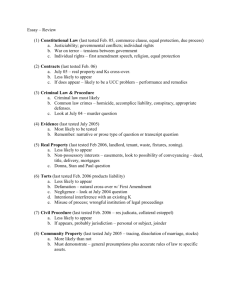Fall 2004 BASK 1102-002
advertisement
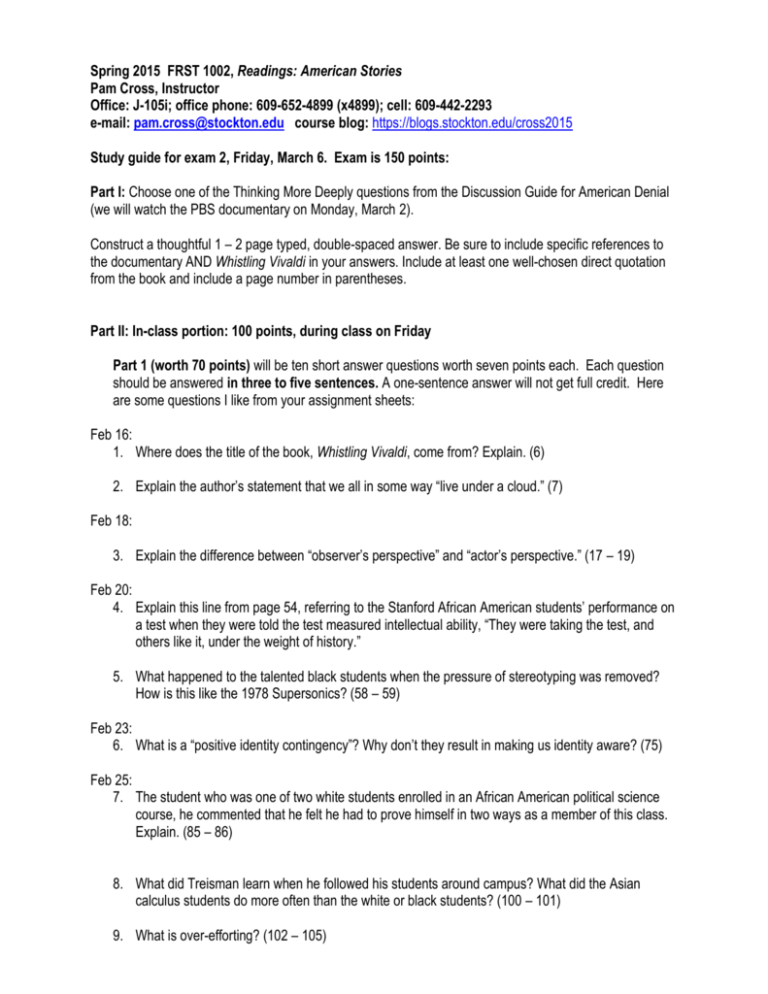
Spring 2015 FRST 1002, Readings: American Stories Pam Cross, Instructor Office: J-105i; office phone: 609-652-4899 (x4899); cell: 609-442-2293 e-mail: pam.cross@stockton.edu course blog: https://blogs.stockton.edu/cross2015 Study guide for exam 2, Friday, March 6. Exam is 150 points: Part I: Choose one of the Thinking More Deeply questions from the Discussion Guide for American Denial (we will watch the PBS documentary on Monday, March 2). Construct a thoughtful 1 – 2 page typed, double-spaced answer. Be sure to include specific references to the documentary AND Whistling Vivaldi in your answers. Include at least one well-chosen direct quotation from the book and include a page number in parentheses. Part II: In-class portion: 100 points, during class on Friday Part 1 (worth 70 points) will be ten short answer questions worth seven points each. Each question should be answered in three to five sentences. A one-sentence answer will not get full credit. Here are some questions I like from your assignment sheets: Feb 16: 1. Where does the title of the book, Whistling Vivaldi, come from? Explain. (6) 2. Explain the author’s statement that we all in some way “live under a cloud.” (7) Feb 18: 3. Explain the difference between “observer’s perspective” and “actor’s perspective.” (17 – 19) Feb 20: 4. Explain this line from page 54, referring to the Stanford African American students’ performance on a test when they were told the test measured intellectual ability, “They were taking the test, and others like it, under the weight of history.” 5. What happened to the talented black students when the pressure of stereotyping was removed? How is this like the 1978 Supersonics? (58 – 59) Feb 23: 6. What is a “positive identity contingency”? Why don’t they result in making us identity aware? (75) Feb 25: 7. The student who was one of two white students enrolled in an African American political science course, he commented that he felt he had to prove himself in two ways as a member of this class. Explain. (85 – 86) 8. What did Treisman learn when he followed his students around campus? What did the Asian calculus students do more often than the white or black students? (100 – 101) 9. What is over-efforting? (102 – 105) 10. Explain “John Henryism” or the John Henry hypothesis. Understand the effects of John Henryism on a person’s health. (131 – 132) 11. What did Supreme Court Justice Sandra Day O’Connor describe as “excruciating”? (134 – 135) 12. Explain “critical mass.” (135) 13. Give some examples of the “age cues” the author sees when he visits the Silicon Valley office. (139) 14. Explain what is needed to help neutralize the negative cues to make members of a minority group start to feel “identity safe.” (146 – 147) Feb 27: 15. Why does the author think the style of mentoring he received from Thomas Ostrom was so helpful for him when he was in graduate school? (159 – 161) 16. What does “self-affirmation theory” posit? (172 – 173) March 2: 17. What is the phenomenon Sheryll Cashin jokingly calls “Southwest First Class”? (191 – 192) 18. What’s wrong with the assessment of the working class white guy from New Jersey that “Nobody gave me nothing?” Hint: it’s not the bad grammar. (197) 19. Explain how the election of Barack Obama supposedly puts us in a “postracial” era? (211) 20. Why does the author include the excerpt of President Obama’s “race speech” from March 2008? (217 – 219) Part 2 (worth 30 points) will ask you to identify 10 people or places or events from the articles we’ve read in the New York Times since the last test (Feb 13), including next week’s. Here’s the model to follow for an identification: _________________________ is a (the) ______________________ that (who) ___________________. For example: Or Boston is a city in Massachusetts where two high-profile trials are taking place. Possible ID’s for Test 2: 1. 2. 3. 4. 5. 6. 7. 8. California Three Strikes Project Aqsa Mahmood “Your actions are a perverted and evil distortion of Islam,” Raqqa, Syria Gunnar Myrdal Herman Saatkamp American Sniper 9. 10. 11. 12. 13. 14. 15. 16. Eddie Ray Routh Chris Kyle Chad Littlefield Rough Creek Lodge and Resort Yusor Mohammad Abu-Salha Razan Mohammad Abu-Salha Deah Shaddy Barakat Craig Stephen Hicks

